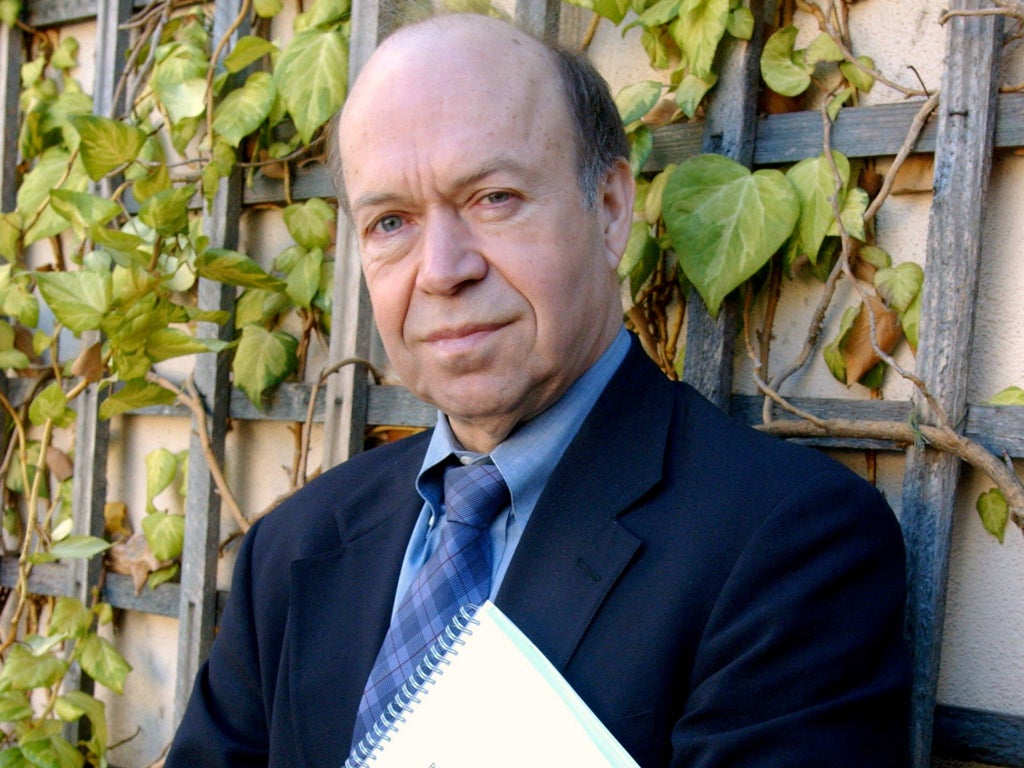Global warning: climate sceptics are winning the battle
Father of the green movement says scientists lack PR skills to make public listen

Your support helps us to tell the story
From reproductive rights to climate change to Big Tech, The Independent is on the ground when the story is developing. Whether it's investigating the financials of Elon Musk's pro-Trump PAC or producing our latest documentary, 'The A Word', which shines a light on the American women fighting for reproductive rights, we know how important it is to parse out the facts from the messaging.
At such a critical moment in US history, we need reporters on the ground. Your donation allows us to keep sending journalists to speak to both sides of the story.
The Independent is trusted by Americans across the entire political spectrum. And unlike many other quality news outlets, we choose not to lock Americans out of our reporting and analysis with paywalls. We believe quality journalism should be available to everyone, paid for by those who can afford it.
Your support makes all the difference.Climate sceptics are winning the argument with the public over global warming, the world's most celebrated climate scientist, James Hansen of NASA, said in London yesterday.
It is happening even though climate science itself is becoming ever clearer in showing that the earth is in increasing danger from rising temperatures, said Dr Hansen, who heads NASA's Goddard Institute of Space Studies, and is widely thought of as "the father of global warming" – his dramatic alert about climate change in US Senate hearings in July 1988 put the issue on the world agenda.
Since then he has been one of the most outspoken advocates of drastic climate action, and yesterday he also publicly criticised Germany's recent decision to abandon its new nuclear power programme, formerly a key part of German climate measures, in the wake of the Fukushima nuclear disaster in Japan earlier this year.
"I think it was a big mistake," he said. "And I think the Prime Minister [German Chancellor Angela Merkel] knows that, as she's a physicist, but I think the political reality is she couldn't stay in office if she expressed that opinion."
In a briefing at the Royal Society , Dr Hansen, pictured, was frank about the success with public opinion of what he termed "the climate contrarians", in effectively lessening public concern about global warming. He said: "They have been winning the argument for several years, even though the science has become clearer.
"There's been a very strong campaign by those who want to continue fossil fuel 'business as usual', and the scientific story has not been powerful enough to offset that push."
Part of the problem, he said, was that the climate sceptic lobby employed communications professionals, whereas "scientists are just barely competent at communicating with the public and don't have the wherewithal to do it."
The result was, he said, that in recent years "a gap has opened between what is understood about global warming by the relevant scientific community, and what's known by the people who need to know – and that's the public. However there's nothing that has happened to reduce our scientific conclusion that we are pushing the system into very dangerous territory, in fact that conclusion has become stronger over that same time period."
Asked if anything might re-alert the public to the dangers of climate change, Dr Hansen said: "Mother Nature."
Significant climatic "extreme events" were now occurring over 10 to 15 per cent of the planet annually, whereas between 1950 to 1980 they occurred over less than 1 per cent. He added: "So in places like Texas this year, Moscow last year, and Europe in 2003, the climate change is so big that they are undeniable. Within 10 to 15 years they're going to occur over 15 to 20 per cent of the planet, so people have to notice that the climate is changing."
Burning issue: Hansen's evidence that the world is hotting up
Texas, summer 2011
The US state this year has had its driest summer since record-keeping began in 1895, with 75 per cent of the state classified as "exceptional drought", the worst level. Shortages of grass, hay and water have forced ranchers to thin their herds – where this cow died, in the San Angelo area, there has been less than three inches of rain.
Moscow, August 2010
Russia experienced its hottest-ever summer last year – for weeks, a large portion of European Russia was more than 7 °C (12.6 °F) warmer than normal, and a new national record was set of 44 °C (111 °F). Raging forest fires filled Moscow with smoke, forcing the cancellation of air services and obliging people to don face masks.
Northern Europe, 2003
Shrivelled French grapes at the end of Europe's hottest summer on record, in 2003. The heatwave led to health crises in several countries and more than 40,000 people are thought to have died. Britain experienced its first (and so far only) 100+ F air temperature – 101.3°F (38.5°C) recorded at Brogdale, Kent, on 10 August.
Join our commenting forum
Join thought-provoking conversations, follow other Independent readers and see their replies
Comments